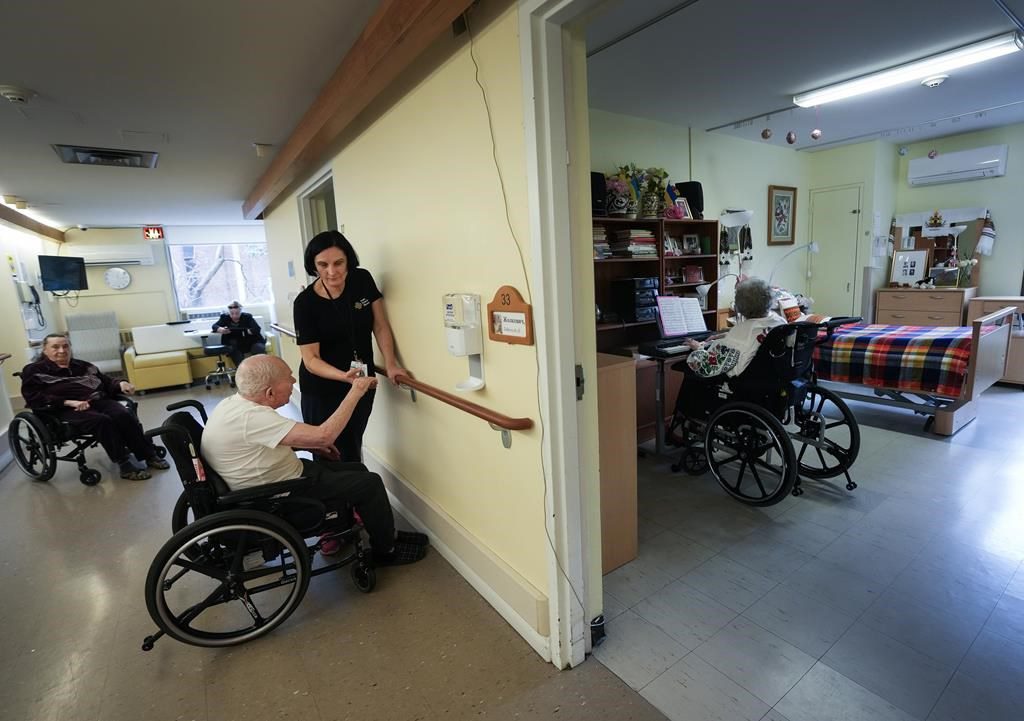An Italian long-term care home in Toronto now admits around three new non-Italian residents each month because of changes in government priority rules. This makes them feel confused and isolated because they don't speak the language.
Villa Colombo’s activities are in Italian, and many of the new residents don’t speak Italian or even English, according to executive director Lisa Alcia.
However, they are being admitted because of changes prioritizing hospital patients who need long-term care but can't be cared for at home.
“I empathize with these residents,” Alcia said.
“They've been in a hospital, and now they're forced into an environment where everyone around them speaks Italian, and they don't. If you have slight dementia, this cultural isolation triggers a lot of negative behaviors.”
This is happening in several cultural long-term care homes in the province, catering to seniors from various communities, including Korean, Jewish, francophone, and others, reported by the association representing non-profit homes.
Bill 7, enacted in 2022, has faced criticism for allowing people to be placed in a long-term care home not of their choice, as per AdvantAge Ontario CEO Lisa Levin.
“The priority has shifted to people coming out of hospitals, and there's a very strict process behind these admissions,” she said.
“So the first person on the list might not have a preference for a cultural home, while the second person could be someone wanting to go to a Finnish home because they're Finnish. The first available space may be in a Finnish home, so it will go to the person who was No. 1 on the list.”
Bill 7 aims to move alternate level of care patients from hospitals to free up space.
If there are no available spaces in preferred long-term care homes, a patient can be moved to a home up to 70 kilometers away, or 150 kilometers if they are in northern Ontario, chosen by a placement coordinator at the hospital.
Patients who refuse the transfer are required to pay hospitals $400 per day.
Levin of AdvantAge Ontario believes that the impact on cultural home admissions from Bill 7 was not intended and has had “encouraging” discussions with Minister Stan Cho about addressing it.
Cho, the current long-term care minister, emphasized the importance of cultural homes to him as a Korean Canadian.
“We are actively looking for a solution,” he said.
“We believe there's good progress with the homes and organizations like AdvantAge to find one. We don't want unintended consequences to cause further issues, especially with the overall capacity problem.”
At the Ivan Franko Long-Term Care Home, a Ukrainian cultural home in Toronto, about 25 percent of the residents are non-Ukrainian, up from 8 to 10 percent before the pandemic, according to CEO Olya Vovnysh.
She said they go to great lengths and do everything they can to create the best care environment for the residents.
She mentioned that the residents struggle to adapt to the new culture, traditions, food, and the new home.
For example, the Ukrainian menu mainly includes potatoes, but some residents prefer rice or pasta, so the staff have to prepare extra meals.
Ukrainians celebrate Orthodox Easter on May 5, but the home now has two Easter celebrations to accommodate residents who celebrated it at the end of March.
The staff also make an effort to greet residents in their native language and ask basic questions about their needs, but it's getting more challenging with residents from various cultural backgrounds.
She mentioned she doesn't want to criticize the government, but she hopes the admissions process can be improved.
She mentioned it's not just about legislation.
She emphasized the importance of enabling people's choice and understanding their needs.



